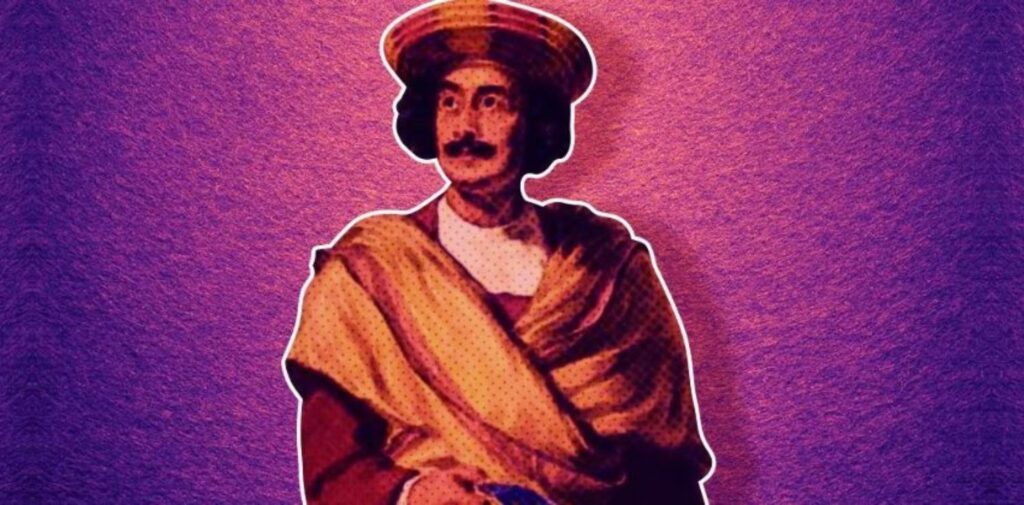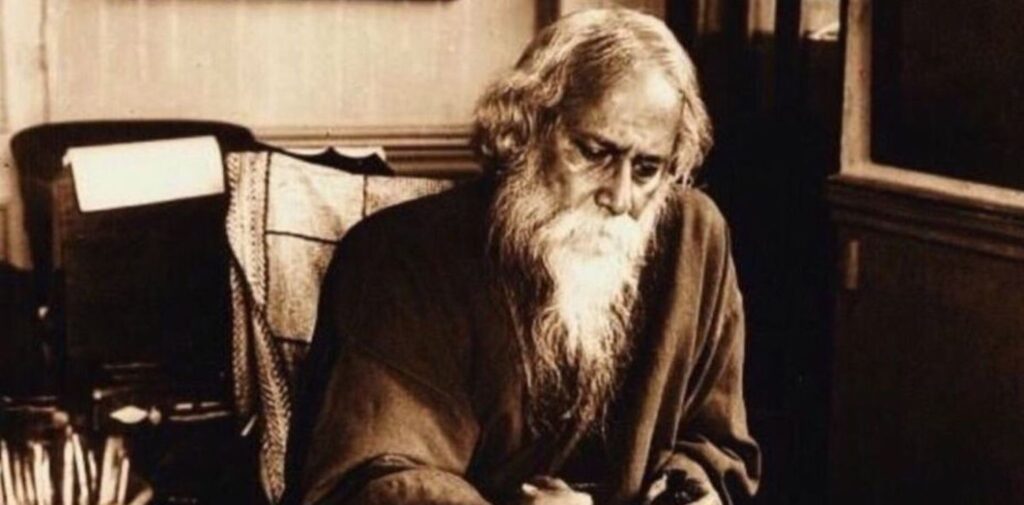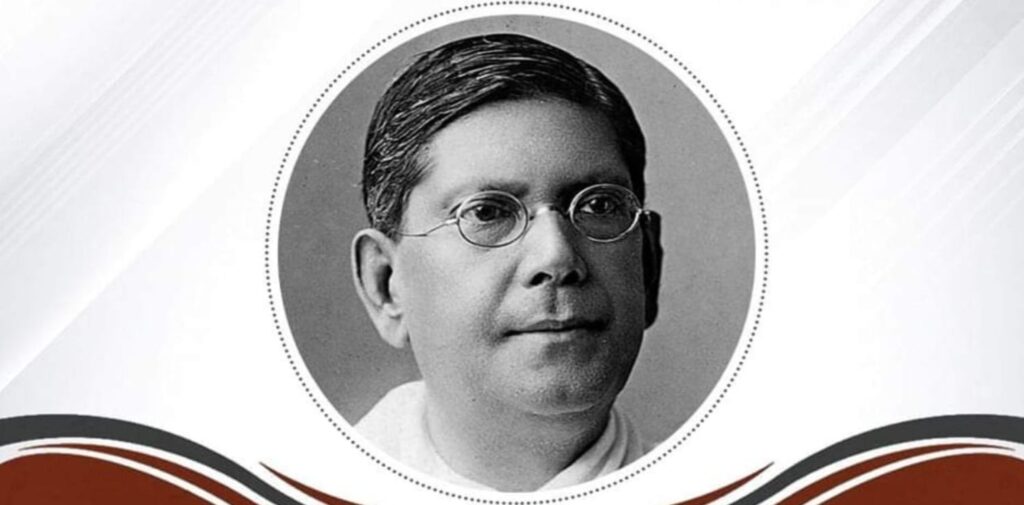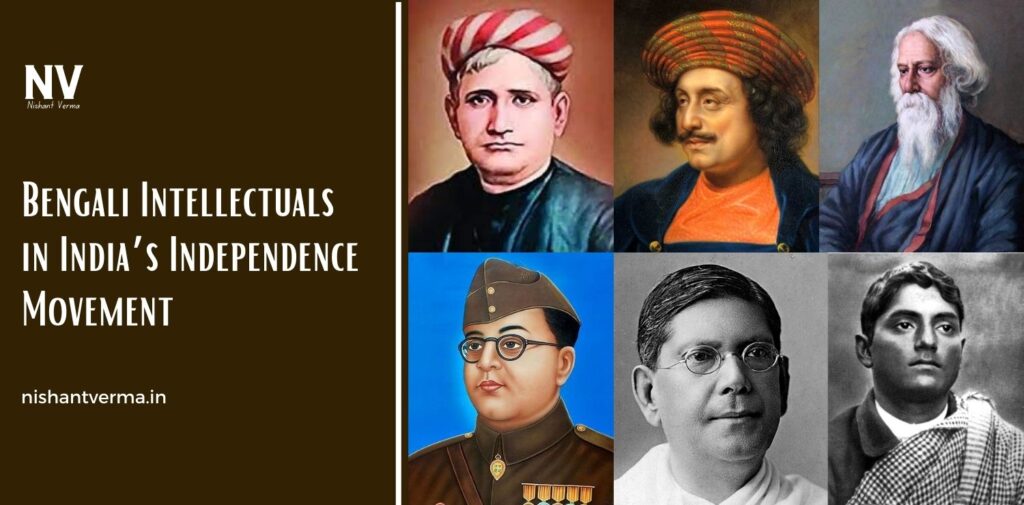India’s fight for independence from British colonial rule was a multifaceted struggle that involved people from various regions, languages, and cultures. Among the many contributors, Bengali intellectuals played a particularly important role in shaping the political and cultural landscape of the country. Their ideas, writings, and actions helped sow the seeds of resistance, and they became key figures in the movement towards freedom.
Bengal, historically known for its rich cultural heritage, became a major center of intellectual activity during the colonial period. This period saw the rise of several thinkers, writers, and leaders who not only contributed to India’s struggle for independence but also helped shape modern Indian thought.
In this article, we will explore the significant role played by Bengali intellectuals in India’s freedom movement, their contributions, and the legacy they left behind.
Early Bengali Intellectualism: Roots of Rebellion
In the 19th century, Bengal was one of the first regions to witness an intellectual awakening in India. This period marked the beginning of social reforms, with many thinkers challenging traditional norms and questioning British colonial rule. The social and intellectual movement in Bengal was not just about cultural revival but also about asserting political rights and freedoms.
Raja Ram Mohan Roy: The Pioneer of Reform
One of the earliest and most influential Bengali intellectuals was Raja Ram Mohan Roy. Known as the “Father of the Indian Renaissance,” Roy was a key figure in both social and political reform. He was instrumental in challenging practices like Sati (the burning of widows) and promoting education for women. Roy’s writings also laid the foundation for Indian nationalism by encouraging Indians to adopt rational thinking and resist foreign domination.
Although he was not directly involved in the independence movement, his thoughts influenced many of the leaders who later led the struggle for freedom. Raja Ram Mohan Roy’s work helped foster a climate of intellectual awakening in Bengal, which would later play a critical role in the fight against British colonialism.

The Rise of Nationalism: Bengali Intellectuals as Political Activists
By the late 19th and early 20th centuries, Bengali intellectuals had become increasingly involved in the political sphere, advocating for India’s freedom. The British colonial regime’s exploitation of the country’s resources and people fueled nationalist sentiments, and Bengal emerged as one of the leading centers of anti-colonial activity. Intellectuals began to channel their thoughts into political action, writing articles, founding nationalist organizations, and leading protests.
Bankim Chandra Chattopadhyay: The Poet of Nationalism
One of the most significant intellectuals to shape the nationalist movement was Bankim Chandra Chattopadhyay. A renowned poet and novelist, Bankim’s work was not only literary but also deeply political. His famous novel Anandamath (1882) introduced the iconic song “Vande Mataram,” which would later become a rallying cry for the independence movement. Anandamath portrayed the idea of a united India, with “Mother India” as a central symbol of nationalism.
Bankim’s writings focused on the idea of self-rule and the revival of India’s ancient glory. His works encouraged people to take pride in their heritage and stand up against British rule. His influence on the development of Indian nationalism, particularly in Bengal, cannot be overstated.
Rabindranath Tagore: The Voice of Unity and Nationalism
Rabindranath Tagore, a Nobel laureate in literature, was another Bengali intellectual who played a major role in shaping India’s freedom movement. Tagore’s writings, poetry, and songs not only spoke of love, nature, and spirituality but also addressed the socio-political issues of his time. His famous song, Jana Gana Mana, later became the national anthem of India, symbolizing the unity of the Indian people.
Tagore was an advocate for the idea of “Swaraj” (self-rule) and opposed British colonial policies. However, he believed in a non-violent and intellectual approach to resistance, urging his fellow Indians to assert their cultural identity and spiritual strength. His emphasis on education and cultural self-expression inspired many in the nationalist movement.
Tagore was also deeply concerned about the division of India and the impact of the partition of Bengal in 1905. His protests against the partition reflected his desire for unity among Indians, irrespective of their religion or region.

Political Activism: Bengali Leaders and Nationalist Movements
While intellectuals laid the groundwork for political thought, Bengali leaders played an active role in the political sphere, advocating for Indian self-rule and resisting British control.
Subhas Chandra Bose: A Revolutionary Leader
Subhas Chandra Bose, one of the most prominent figures in India’s independence movement, was an important Bengali leader who went beyond intellectualism to take direct action against British colonialism. A charismatic leader, Bose’s approach to independence was far more radical than that of many contemporary leaders. He was a strong advocate for armed resistance and was willing to take bold steps to achieve freedom for India.
Bose’s leadership in the formation of the Indian National Army (INA) in Southeast Asia was a defining moment in the struggle for independence. Although Bose’s methods differed from those of Mahatma Gandhi and others in the Congress, his emphasis on national unity and his determination to free India from colonial rule were a source of inspiration for millions of Indians.
Deshbandhu Chittaranjan Das: A Leader of the Masses
Deshbandhu Chittaranjan Das was another influential Bengali leader in the early 20th century who significantly impacted the freedom movement. He was a strong advocate for the rights of the common people and believed in working closely with them to fight for India’s independence. Das was an important figure in the Non-Cooperation Movement led by Gandhi and was also a member of the Swaraj Party.
Das’ political leadership was based on the idea of social justice, and he worked tirelessly to address the needs of the poor and marginalized sections of society. His emphasis on unity and social reform was crucial in rallying the masses to the cause of independence.

Literary Contributions to the Freedom Struggle
Apart from political activism, Bengali intellectuals also made significant contributions through literature, which became a powerful tool in the fight for independence. Writers used literature to awaken nationalist sentiments, criticize British policies, and inspire a sense of unity among the people.
The Role of Newspapers and Magazines
In Bengal, newspapers and magazines became crucial platforms for intellectuals to spread nationalist ideas. Publications like Bengali and Amrita Bazar Patrika were instrumental in shaping public opinion and mobilizing people for the cause of independence. These publications, run by intellectuals and nationalist leaders, exposed the injustices of British rule and promoted the ideas of self-reliance and cultural revival.
Bengali writers also produced political essays, poems, and novels that inspired resistance against colonial rule. These literary works were often used to educate the masses about their rights and the need for independence.
Bengal’s Contribution to the Indian National Congress
Bengali intellectuals also made valuable contributions to the Indian National Congress (INC), the principal political organization leading the freedom movement. Many Bengali leaders and thinkers were part of the Congress, advocating for reforms, self-rule, and the end of British imperialism.
The Role of the Tagore Family
The Tagore family, which produced figures like Rabindranath Tagore and his brothers, played a crucial role in the nationalist movement. The family’s contributions ranged from writing and poetry to political activism. Rabindranath Tagore himself was an active participant in the Indian National Congress and played a role in many of its important discussions. Though he had reservations about some of the methods of the Congress, his support for Indian self-rule was unwavering.
Legacy of Bengali Intellectuals in the Independence Movement
Bengali intellectuals played a central role in India’s independence movement, not only through their writings and ideas but also through their active involvement in political struggles. They helped shape India’s identity as a nation, contributed to the growth of the nationalist movement, and inspired generations of people to fight for their rights.
Figures like Bankim Chandra Chattopadhyay, Rabindranath Tagore, Subhas Chandra Bose, and Chittaranjan Das left an indelible mark on the political and cultural fabric of India. Their contributions went beyond mere political activity; they instilled a sense of pride, unity, and purpose in a diverse country, helping lay the foundation for India’s eventual independence.
Conclusion
The role of Bengali intellectuals in India’s independence movement was vital to shaping the political, cultural, and social dimensions of the struggle. From early reformers like Raja Ram Mohan Roy to radical revolutionaries like Subhas Chandra Bose, Bengali thinkers and leaders were at the forefront of the battle for India’s freedom. Their writings, ideas, and actions helped inspire generations of Indians to fight for a free and self-reliant nation. Today, their legacy continues to inspire those who seek justice, equality, and independence.




